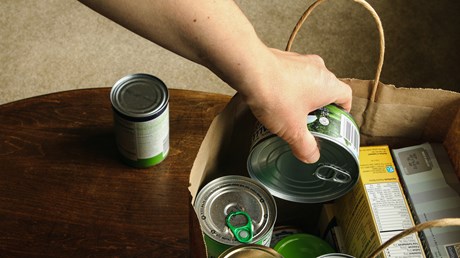Research highlights radical giving of poor and unpaid labor of women.

My brother and I grew up lower-middle income on or near military bases, where the needs of young service members and their families can be seen pretty acutely. Our family relied on the generosity of others, but my mom also involved our family in giving during the Advent season. She was active in the enlisted wives’ club on base and then later in the officer wives’ club, helping volunteer for people who had less reliable access to food and clothes than we did. We made meals, collected cans, and did what we could with our time.
This year during the holidays, while hundreds of thousands of American Christians will donate money and bags of canned food to local food banks, many will also volunteer their time in soup kitchens or elsewhere.
This volunteering often goes unacknowledged. While we are generally a generous nation, or like to presume we are, we have some funny quirks about it. For one, we like to quantify it and focus quite a bit on the dollars and cents side of things. So much so, in fact, that the British journalist and Christian apologist G. K. Chesterton once teased us, a century ago, about our ostentatious, and not-so-Christlike charity: “An American will praise the prodigal generosity of some other man in giving up his own estate for the good of the poor,” he wrote. “But he will generally say that the philanthropist gave them a 200-acre park, where an Englishman would think it quite sufficient to say that he gave them a park.”
This American focus on money is an interesting observation in light of the fact that we could give a lot more. In 2008, Passing the Plate: Why American Christians Don’t Give Away More Money, by sociologists Christian Smith, Michael Emerson, and Patricia …
Source: Christianity Today Most Read